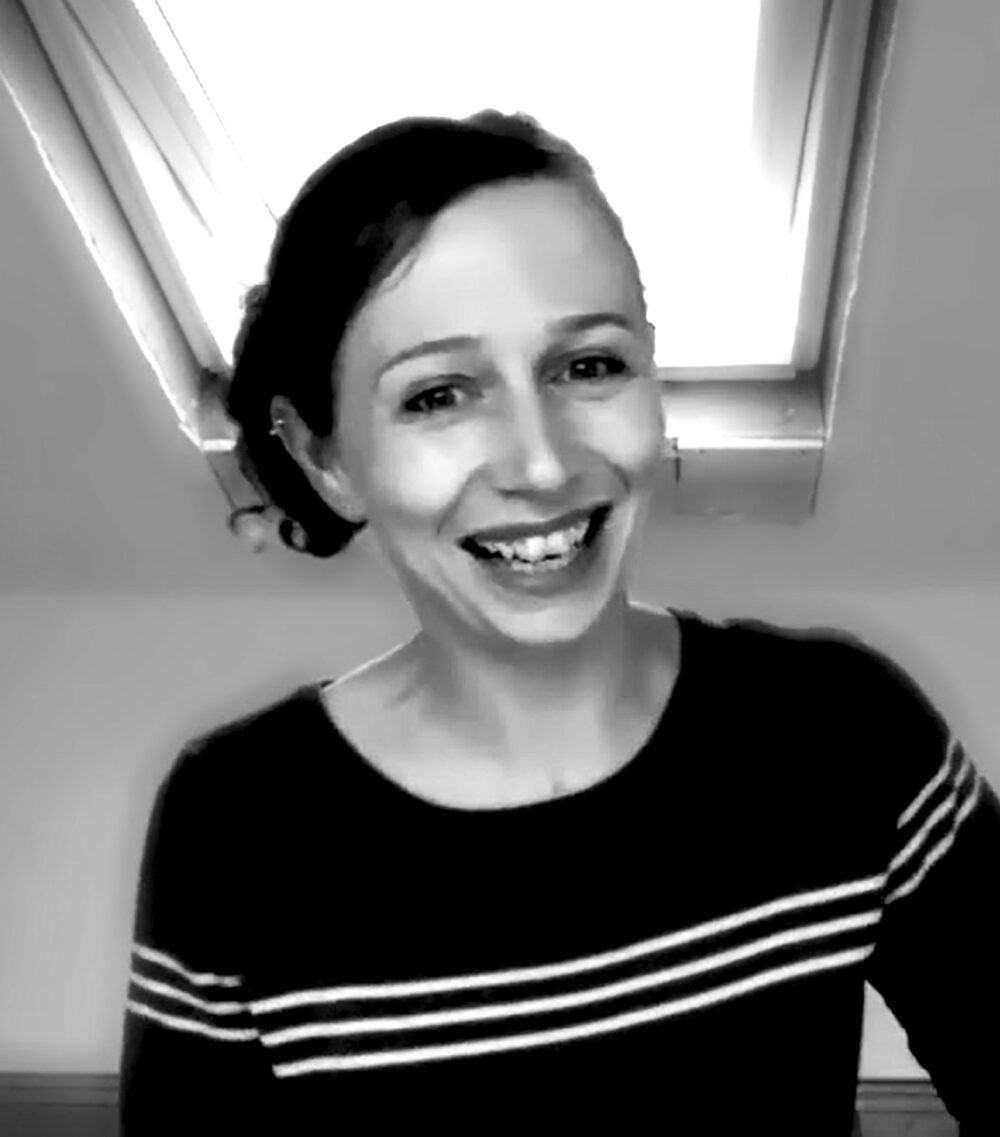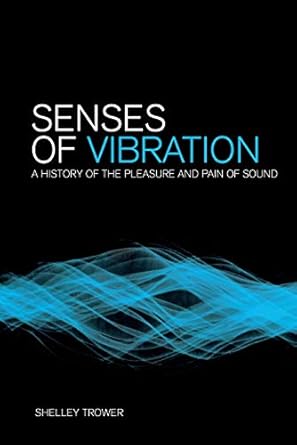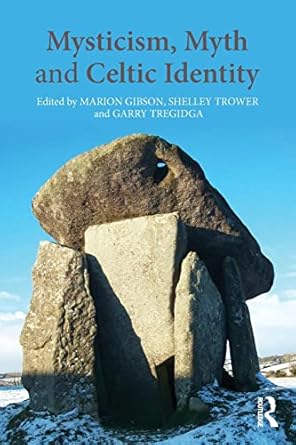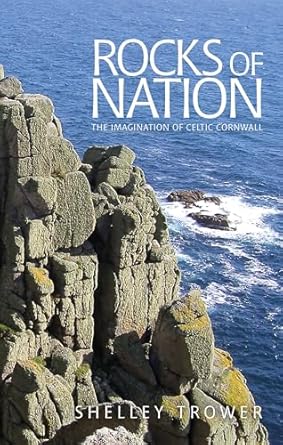Interview with Shelley Trower
writer
Questions by Kate Horsley
Tell us a little about where you live.
I live in Lostwithiel, which has a very old bridge and river much like the one in the story. I’d like to say though that the story’s Lostwithiel is definitely fictionalised. I’ve lived here for just a year, and after a childhood nearer the north coast have come to appreciate the river—I love that it’s a tidal river as it feels so connected to the sea, with such rich differences between low and high tides.
Are there local stories, myths, legends that inspire you?
Yes, growing up in Bodmin, I think especially I was fascinated by the idea of the beast of Bodmin moor roaming wild, and also the ancient stones—like the myths that they’re people turned to stone. These kinds of myths have been retold and reimagined in so many ways, as I came to see much later when researching my book Rocks of Nation: The Imagination of Celtic Cornwall. So for example short stories by writers like Donald Rawe depict such stones as living entities that reject incomers, and much as I share a wish to ban second homes and appreciate the very serious housing crisis going on here, I think some of these “nationalist” writers may go too far in using ancestry as a basis for who belongs and who should be excluded.
One thing I wanted to do in ‘Lostwithiel’ was invert that kind of narrative by having the land itself as a living entity that in fact welcomes strangers. I want to resist the idea that you can only truly belong to Cornwall, or be Cornish, if you have ancestral connections or are born here; people can belong in all kinds of ways. In the story the new arrivals know the language better than some of the locals do.
Which short story writers have influenced you the most and how?
I’m mainly a novel reader but I do enjoy short stories too—and especially I’ve been influenced in ‘Lostwithiel’ by local stories as I’ve already mentioned. There’s also stories set in Cornwall by writers who travel here, and I read a load of these too for Rocks of Nation. In stories by E. F. Benson and others there’s typically a white male narrator who travels to Cornwall, seeing it as an exotic region or country full of myths and superstitious people. In ‘Lostwithiel’ the London-based narrator carries such assumptions about the locals like farmer Jago, and again the story totally upends that; he turns out not to be the provincial racist she thought he was but far more open and progressive than she has been.
We are very excited that you’re contributing a beautiful short story to Inkfish! What inspired your piece?
Thank you! The main inspiration for it was visiting my parents-in-law, and our children playing in the river. Lostwithiel felt like a peaceful, safe place for me. Moving here has felt like an incredible privilege. My story is a kind of dream that it could be this way for people in need of refuge from other places too, especially considering how it is countries like the UK that have done the most to cause climate crises and other growing problems across parts of the world that have done the least to cause them, meaning there are ever more refugees. I’m also aware that many local people can’t afford to live here, and again second homes contribute to that problem.
What feels different about writing short rather than long?
Well I’ve been grappling with my first novel draft for a couple of years now – it feels like quite an unwieldly beast. I’ve drafted a second too, which I’ve found much easier but there’s some considerable way to go yet. So it’s a pleasure to turn to something that can be published within a few months instead of years, if ever! Also I don’t seem to plan my short stories. I just get an idea and start writing to see where they take me.
Is there an anecdote you could share about your research process?
For this story it’s got to be finding the Old Cornish word for Lostwithiel. I was doing a project for The Writers Block to gather peoples’ ‘Stories of Stuff’ in the library, and an ex-farmer as it happens told me about the local history section where I found this old spelling. I love Cornish place-names like ‘Lostgwydeyel’ and ‘Tywradreath’ (deriving from ‘Ti War Dreath’, meaning house on the beach).
You’re an academic as well as an author, and you’ve written some fascinating non-fiction books. Could you tell us about how your scholarly process influences your creative work? How are the two kinds of writing different/similar? What do you enjoy most about academic work?
To start with a similarity: I think that academic writing can be creative. There’s times when you have to solve something, find a way forward, reach a higher level with your work – whether that’s for an academic book or fiction – and you have to allow your mind to drift along the linear path of your narrative and its various future possibilities, to almost float around it in a focused kind of unfocused way that I’m finding hard to articulate! It’s maybe a state of ‘negative capability’ (a term I picked up when teaching Keats’s poetry): dwelling in a state of openness that tolerates uncertainties and doubts without ‘irritable reaching after fact and reason.’
There’s definitely differences too though, like in the research process. My creative writing so far tends to draw on my own experiences, so rather than having to go and read a ton of books I can go to the river, say, and turn my attention to how that exists as a sensory experience, and how I might convey that in language.
What are you working on now?
I’m working on two novels. Ghost Snow & River is about a Professor of History haunted by her own past. As the title indicates, it’s also centred around a river that keeps flooding, driving the plot forward – kind of ghost story meets climate crisis. The second is Star, following a heavily pregnant woman living on the streets of London’s West End as it grinds and sparkles through the month of December. I’m wanting it to tell an alternative Christmas tale.
About Shelley Trower
Shelley Trower worked as a Professor of English Literature at the University of Roehampton before returning to Cornwall. Books include Senses of Vibration (2012), Rocks of Nation (2015), and Sound Writing (2023). Shelley now works with libraries, and since leaving academia has published short stories including ‘Seagulls’ in Litro Magazine (nominated for Pushcart in 2023), and is currently funded by Arts Council England to develop her novel writing. The opening chapters of her first novel manuscript have been longlisted by Mslexia and won the Plaza Literary prize. Visit Shelley’s website or follow her on Twitter.






